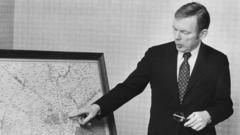Billionaire media mogul Charles Dolan, known for revolutionizing cable television in New York City, has died at the age of 98. Dolan played a pivotal role in the emergence of cable TV in the 1960s and 70s, initially selling specialized programming to hotels through his Teleguide service in a time when cable was rapidly expanding in rural areas.
In 1964, Dolan struck a deal with New York City to wire several buildings in Manhattan for cable service. His ambitions included broadcasting Knicks and Rangers playoff games, in a bid to attract a larger audience. This venture led him to establish Home Box Office (HBO), a groundbreaking platform for movie viewing, which he later sold along with his cable service to focus on building up Cablevision—a cable provider that would bring television and internet access to households across the northeastern United States.
In 2015, Dolan's family sold Cablevision to Altice, a European telecommunications company, for nearly $18 billion. By this time, Dolan's son, James, had taken the reins, guiding what the New York Times referred to as the family's empire.
Despite their significant contributions to the media landscape, the Dolan family garnered a mixed reputation among New Yorkers, often being characterized as "the family that New Yorkers loved to hate," largely due to frustrations over the performance of the Knicks and contentious battles with networks regarding programming rights that sometimes hindered access to major events like the Academy Awards and World Series.
At the time of his passing, Charles Dolan's net worth was estimated at $5.4 billion, according to Forbes, marking him as a significant figure in the industry. His legacy will be remembered as a cornerstone of American broadcasting history.


















